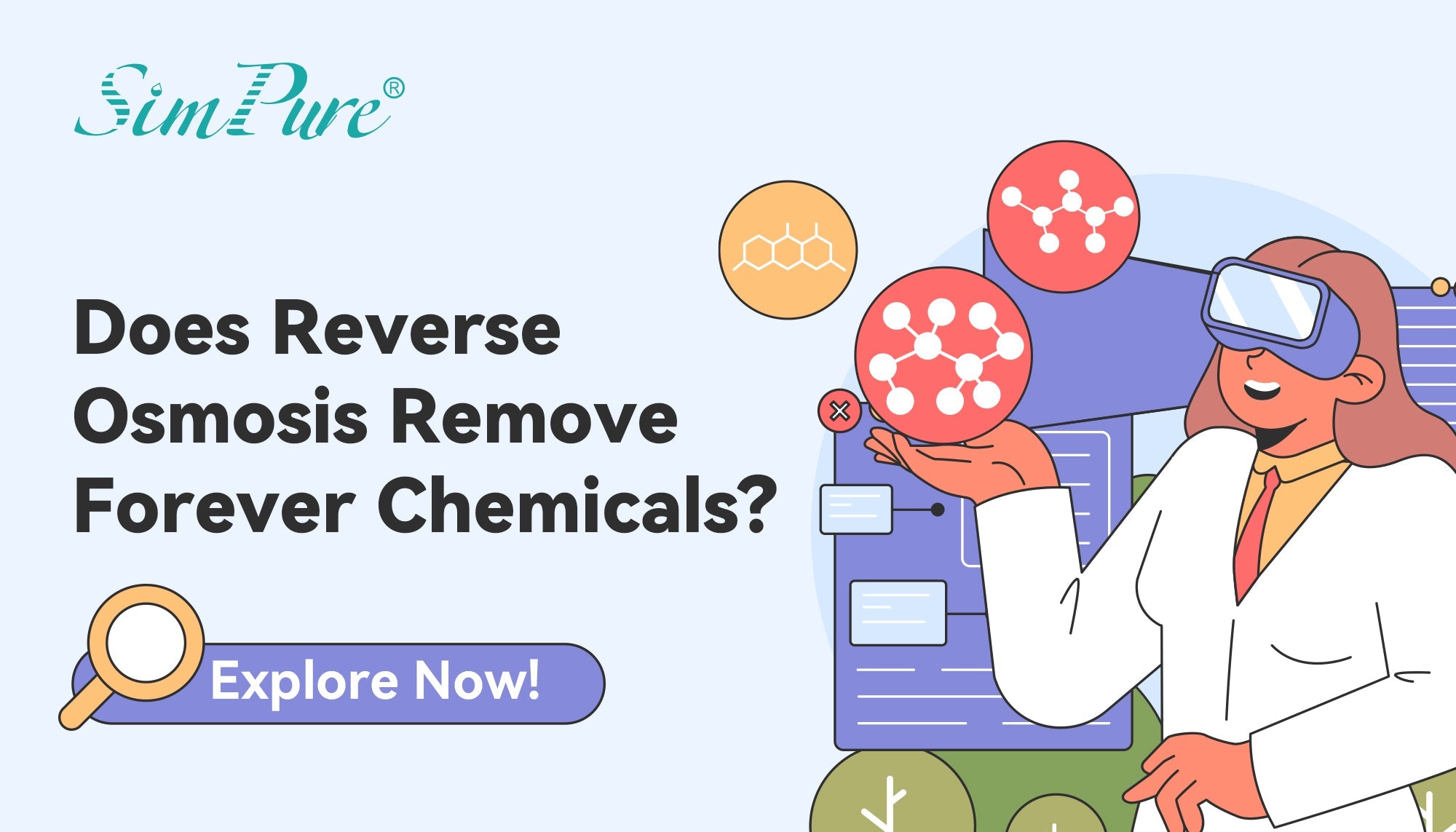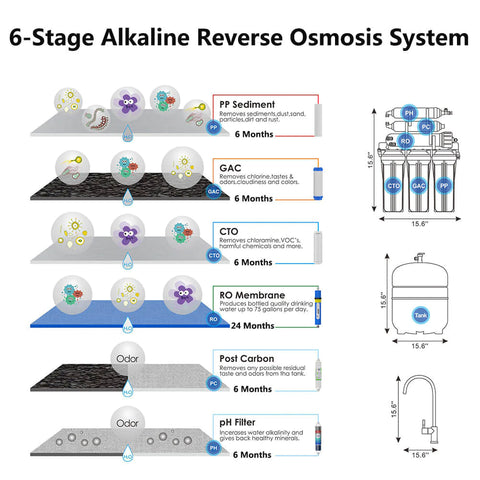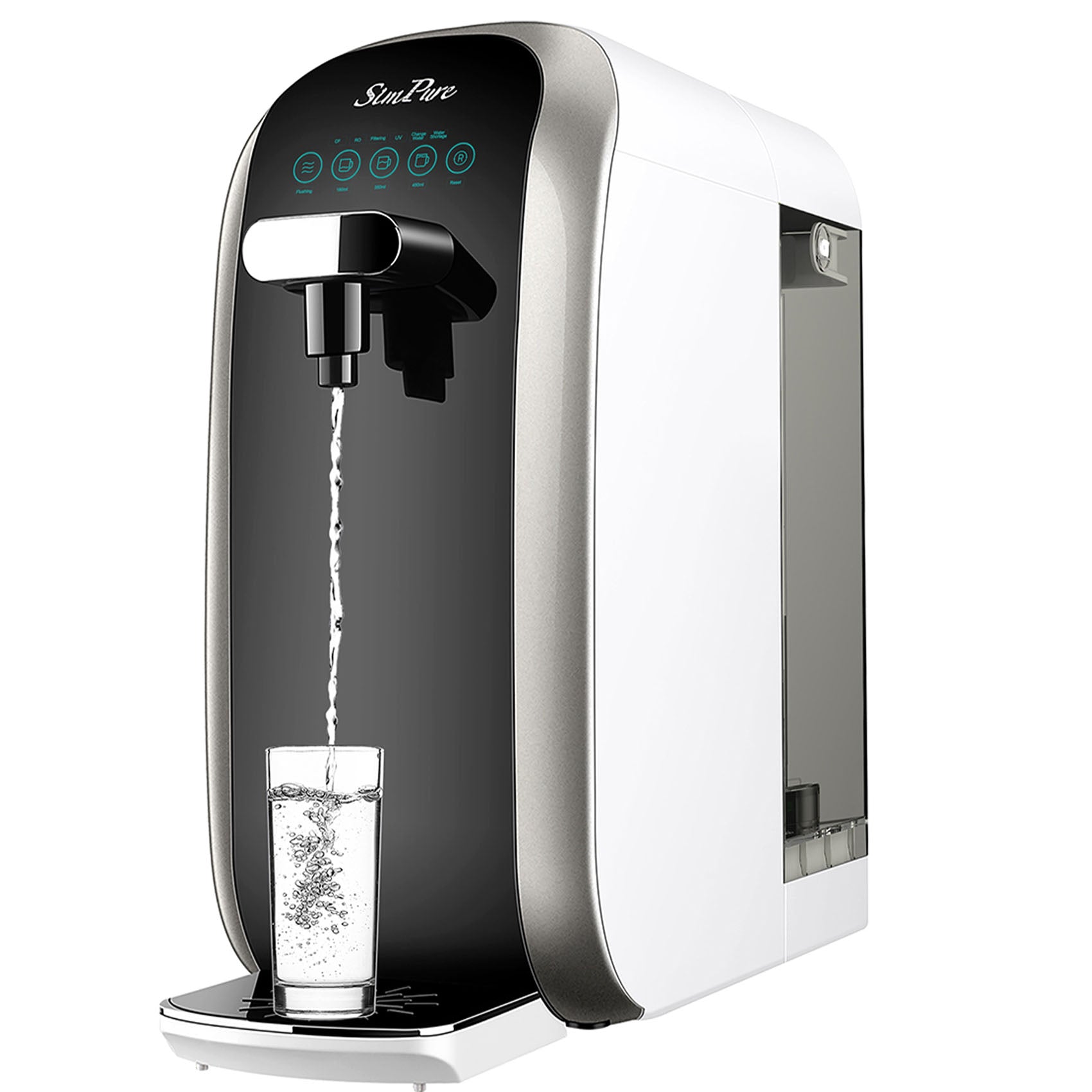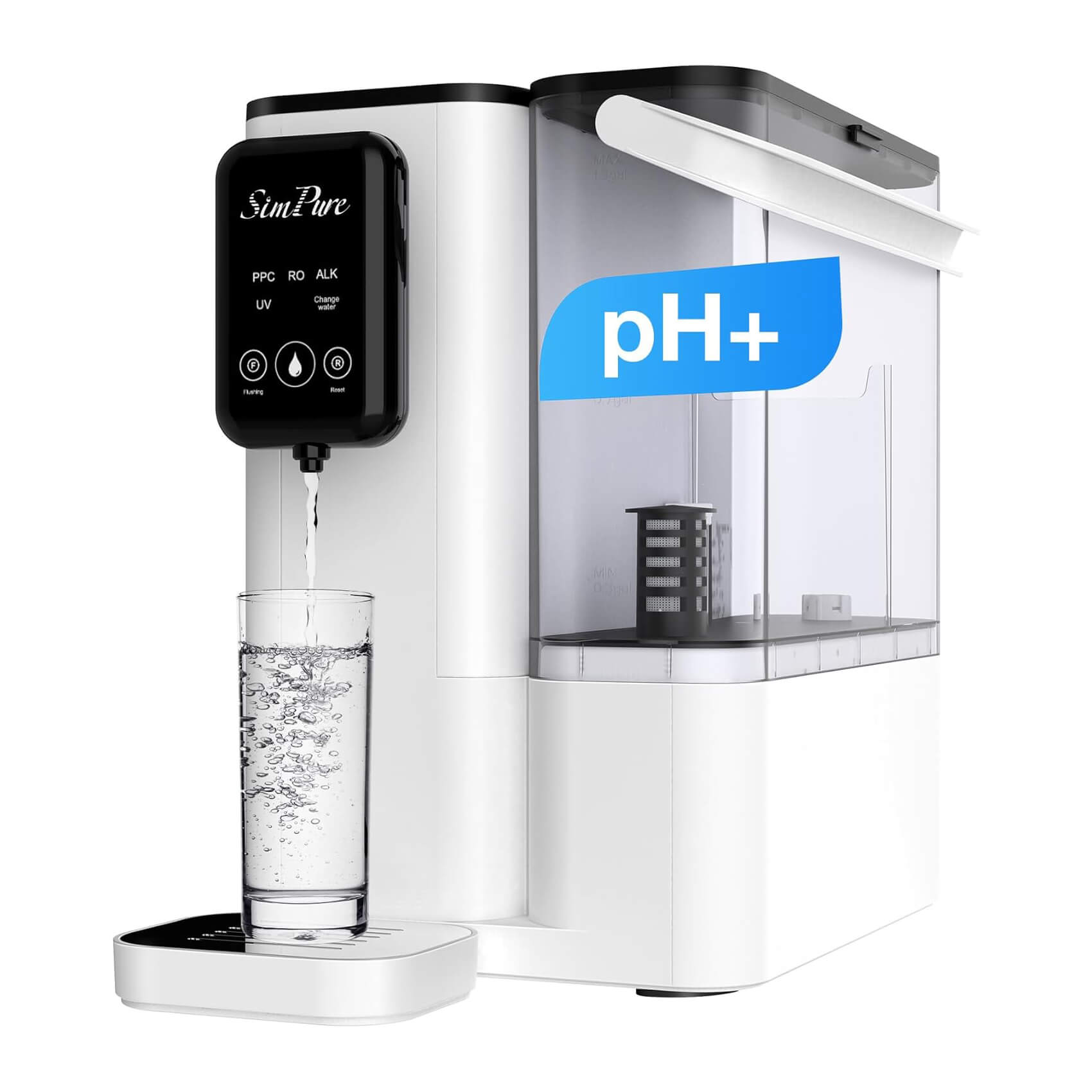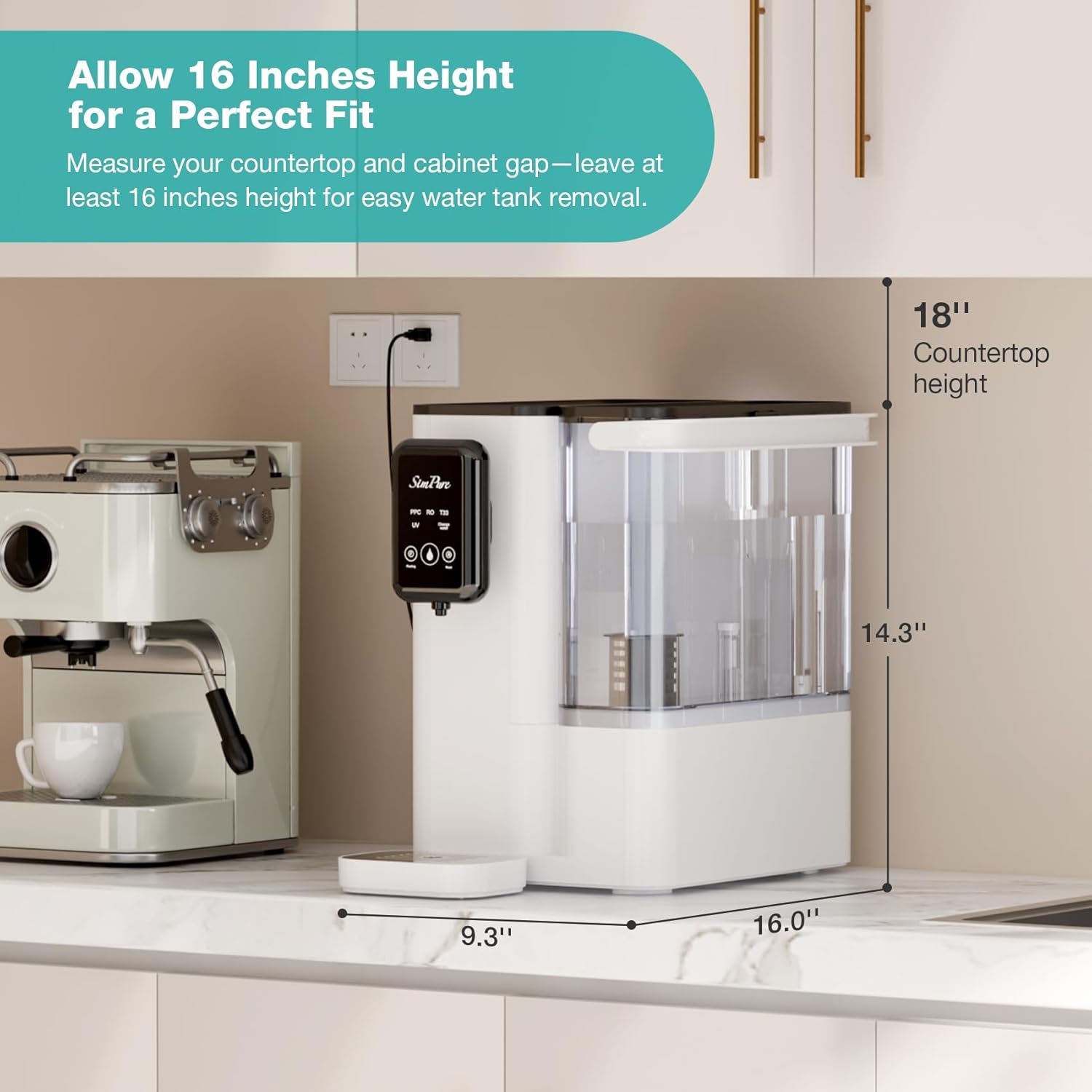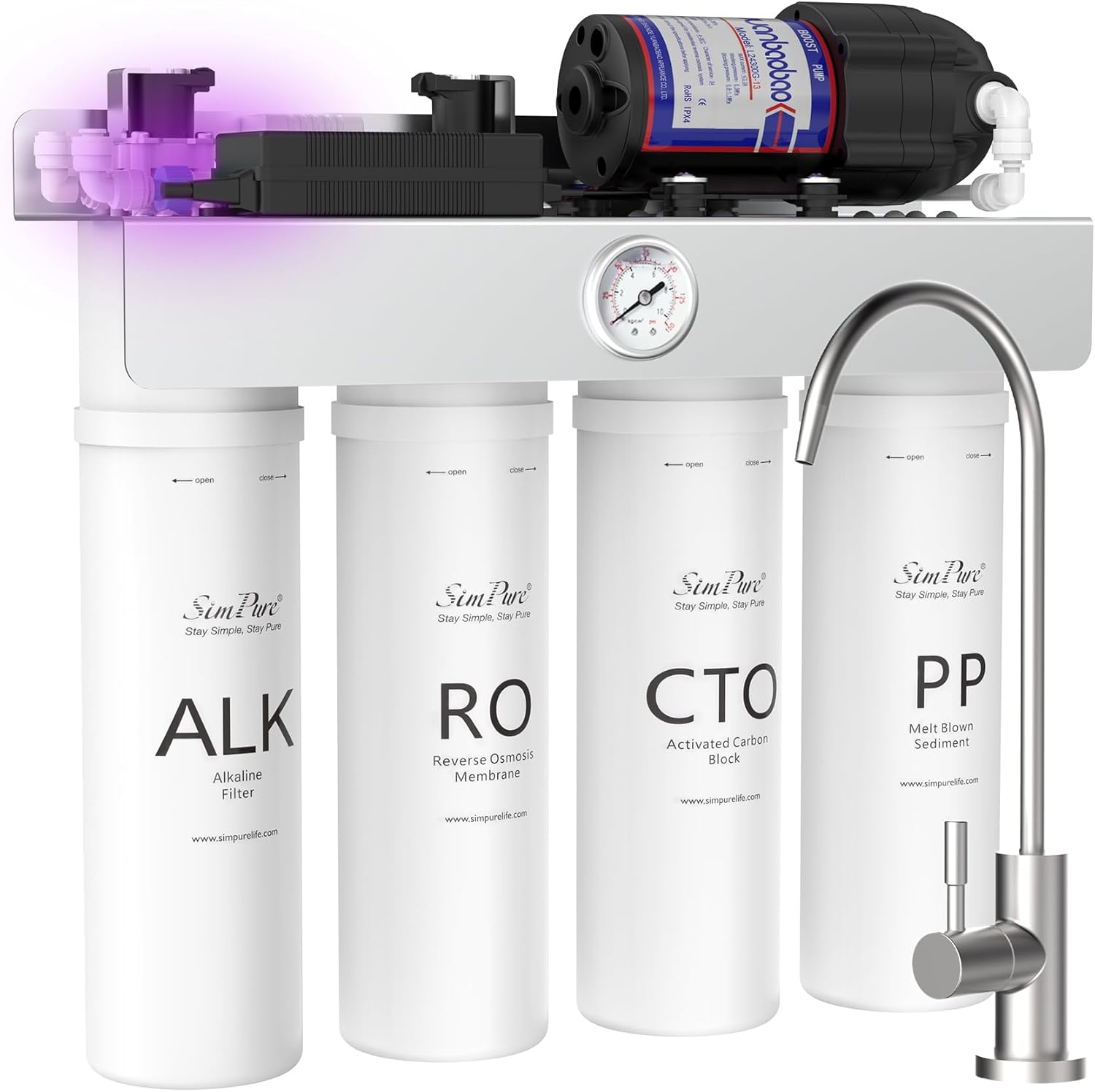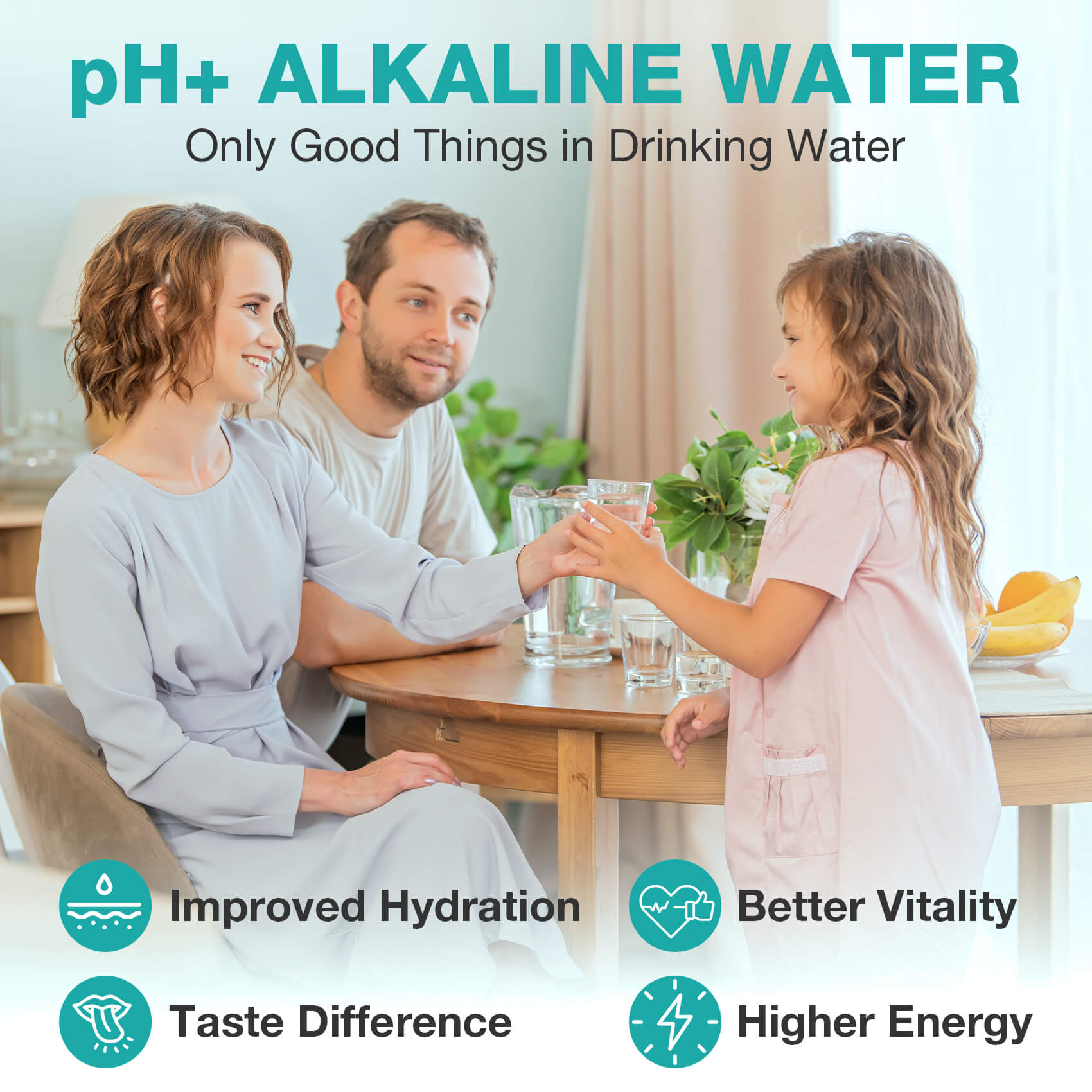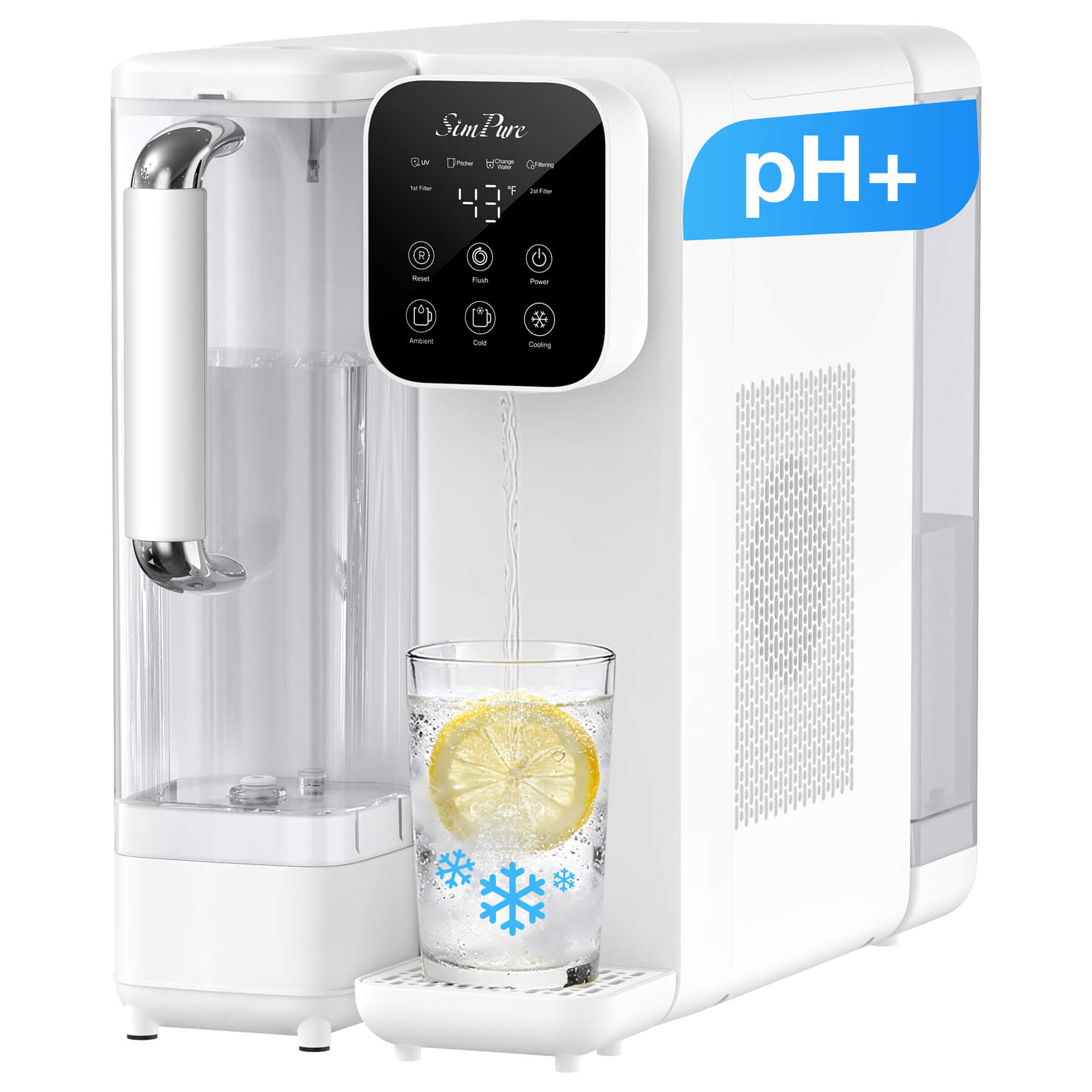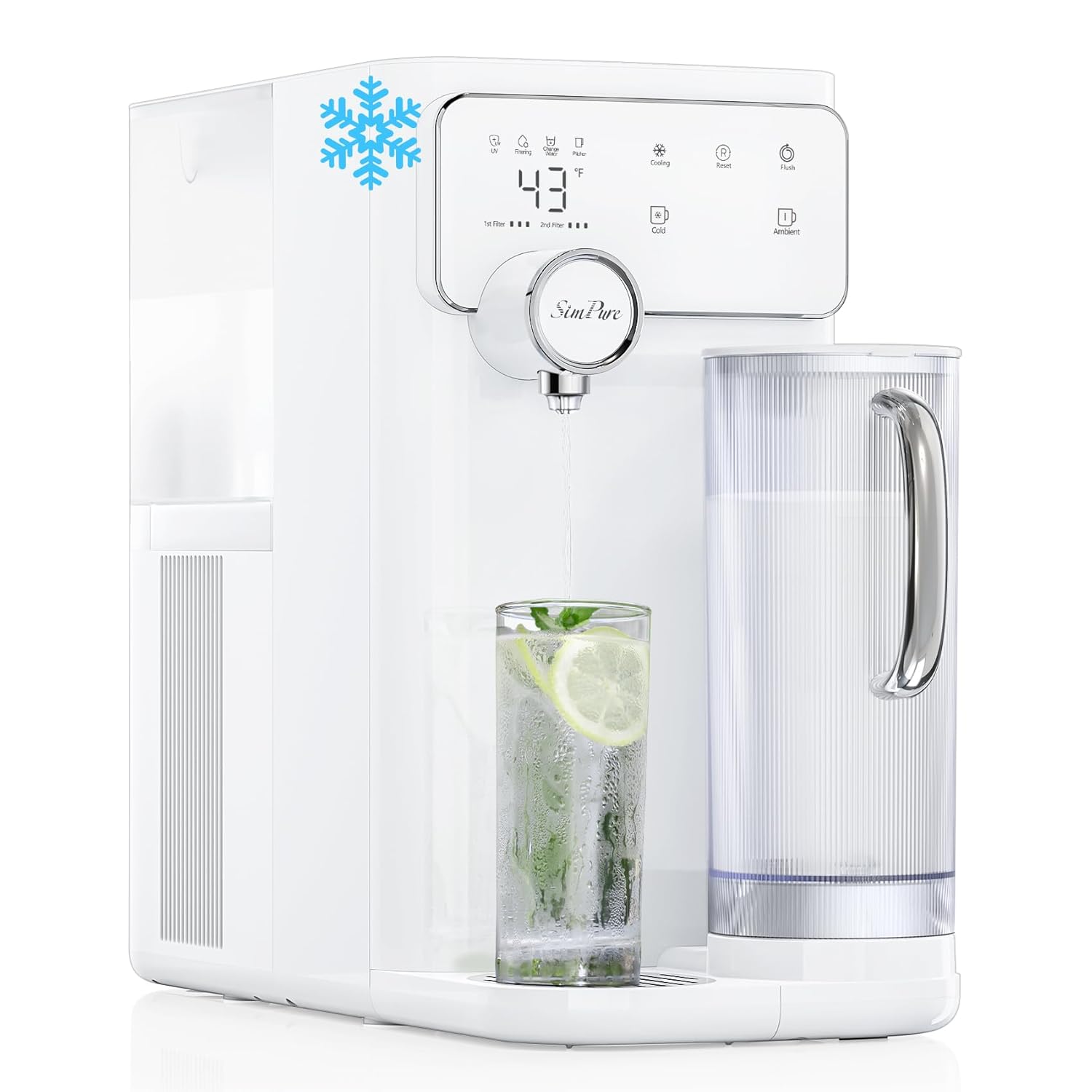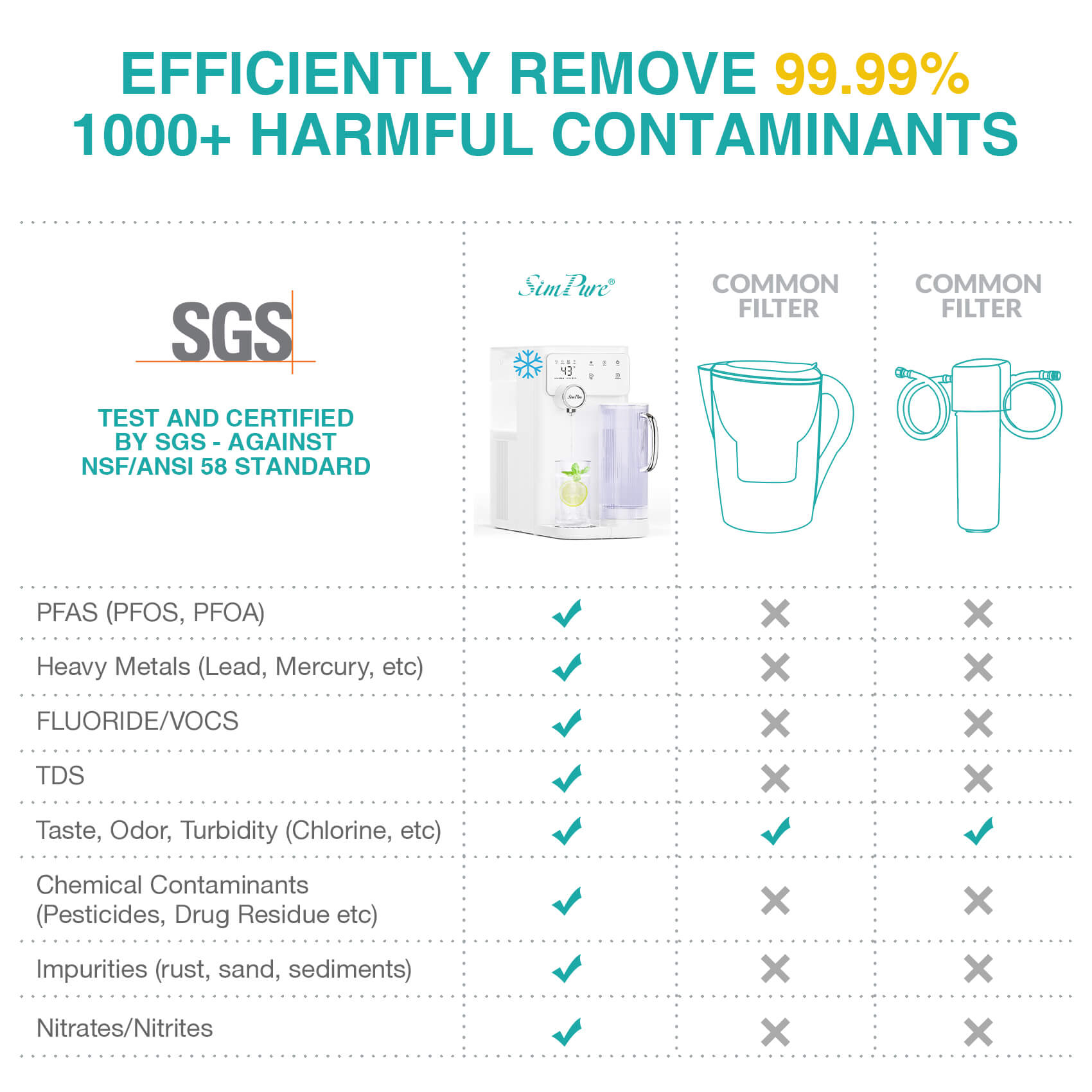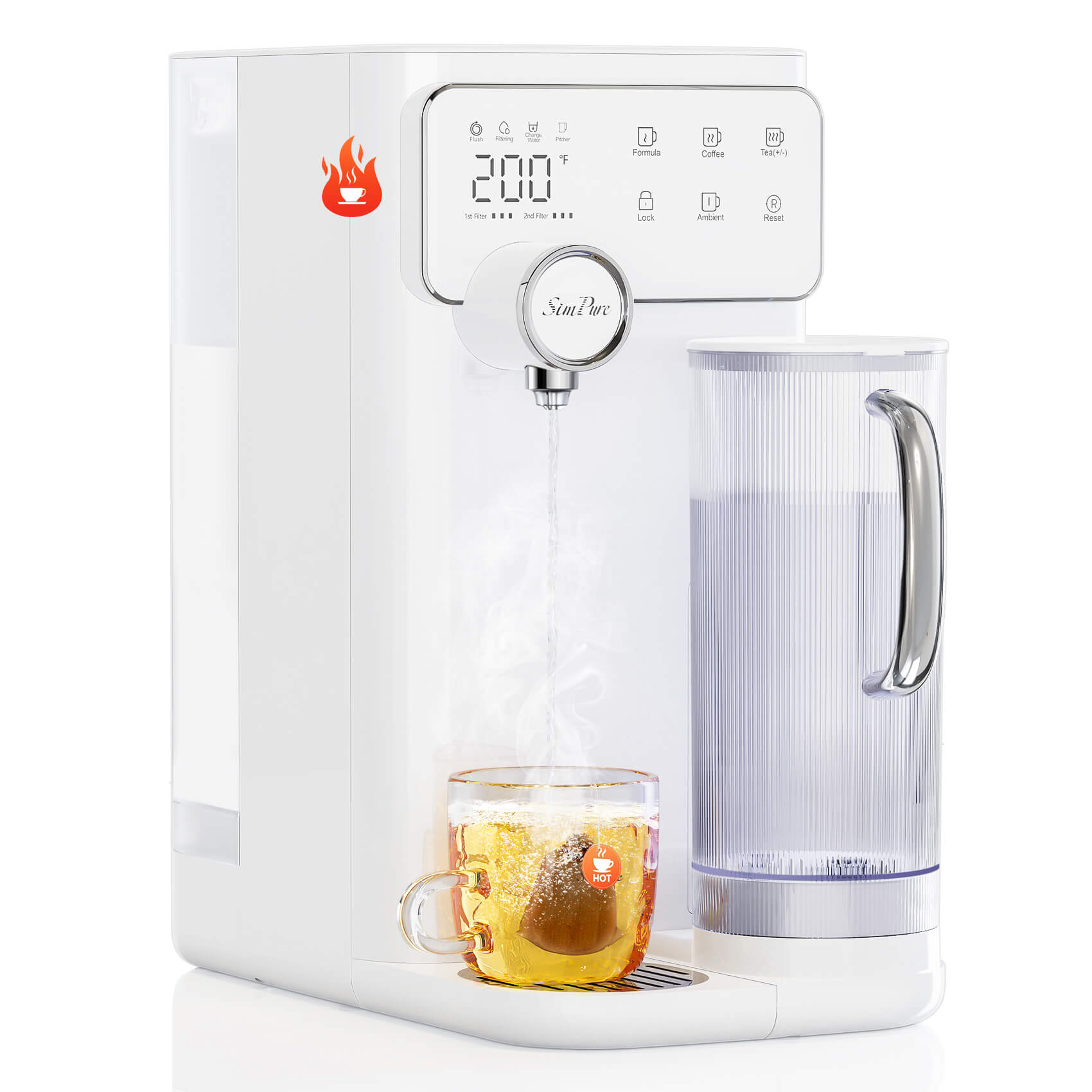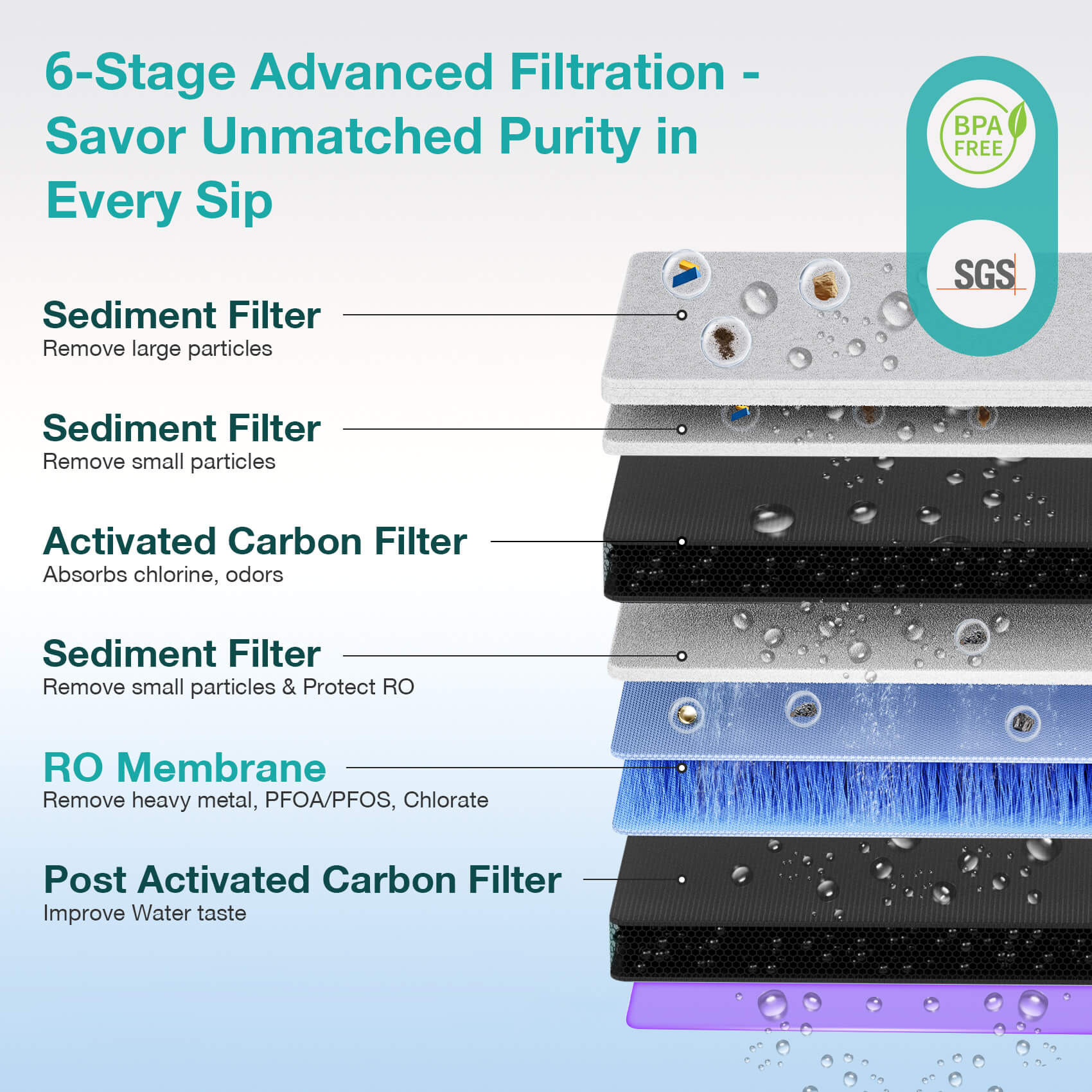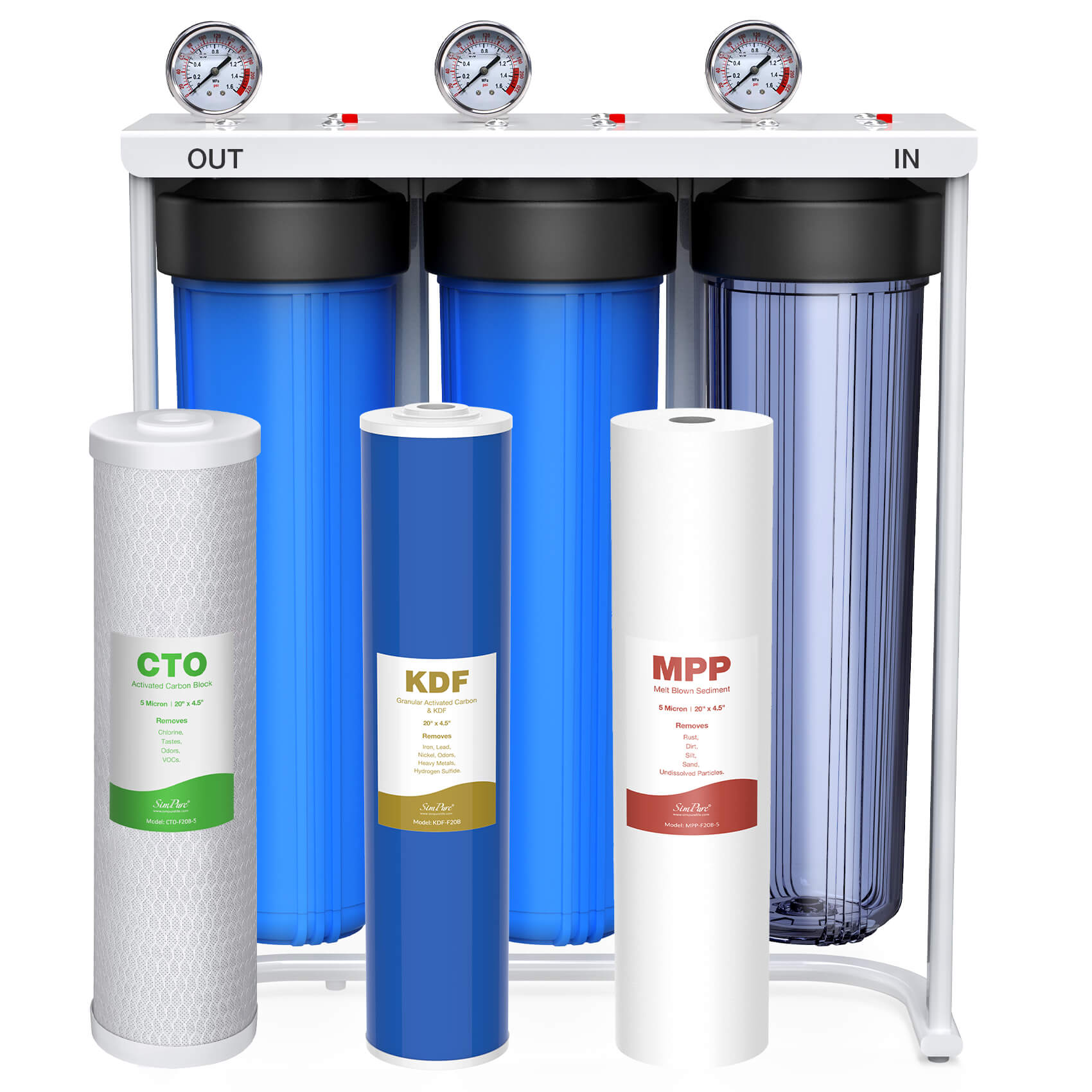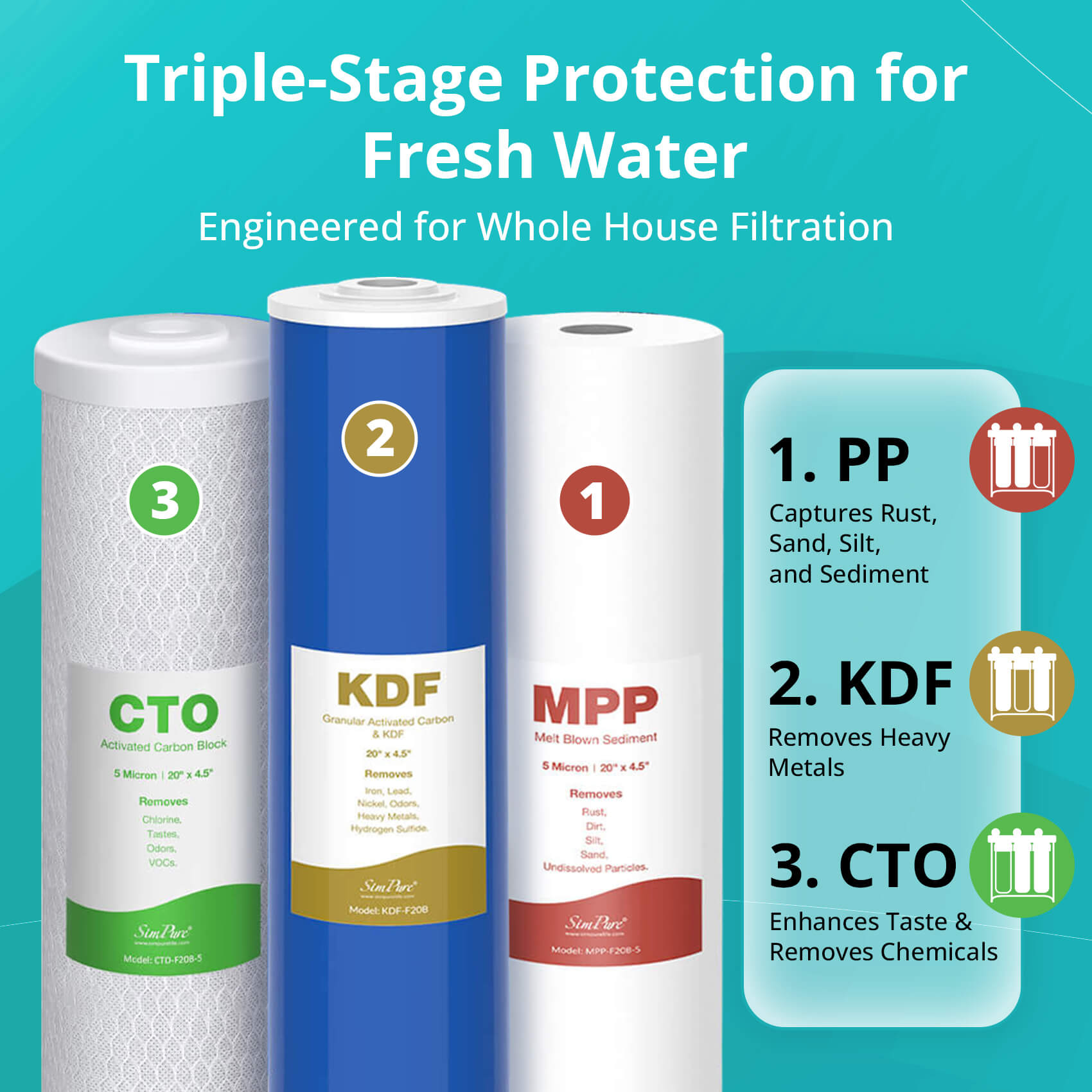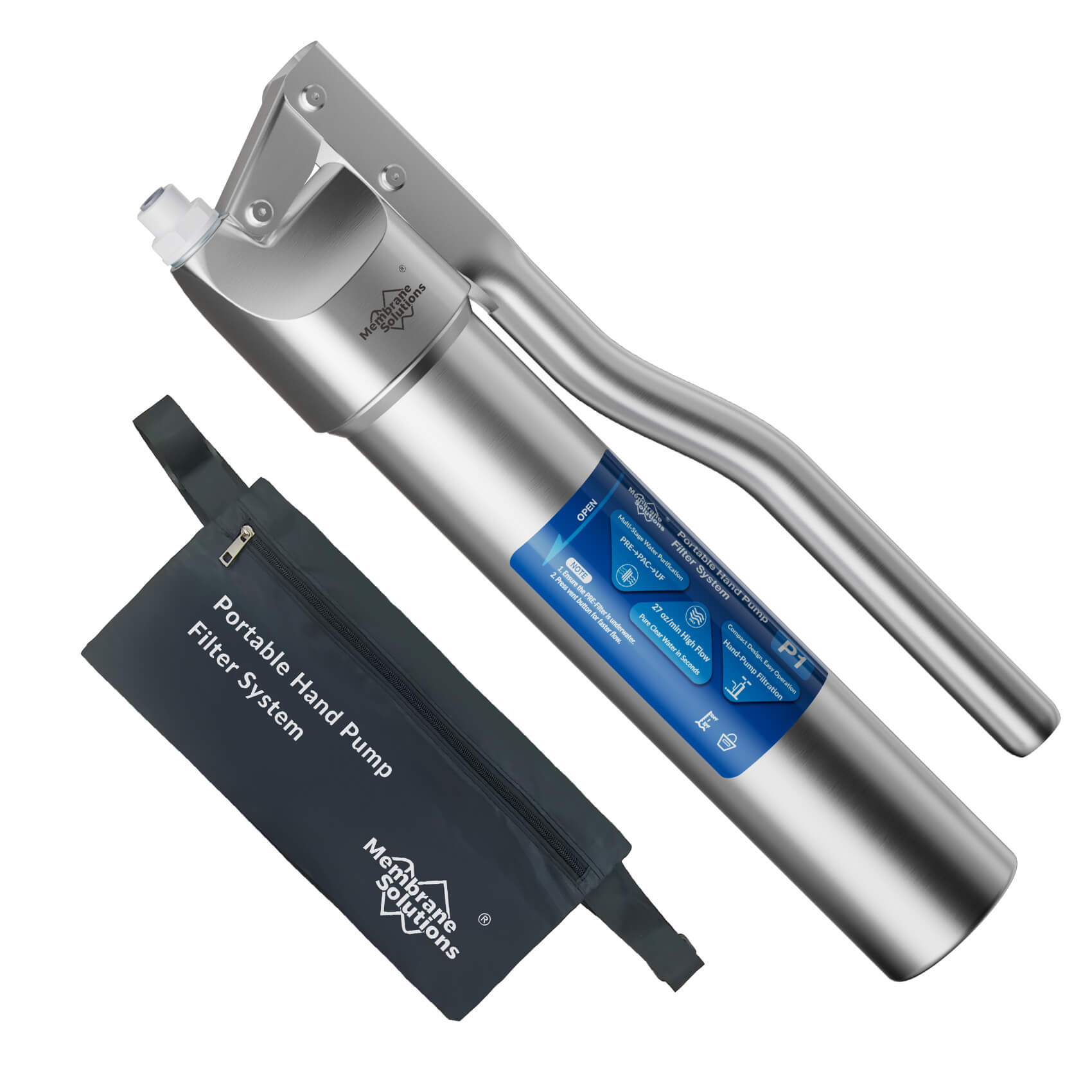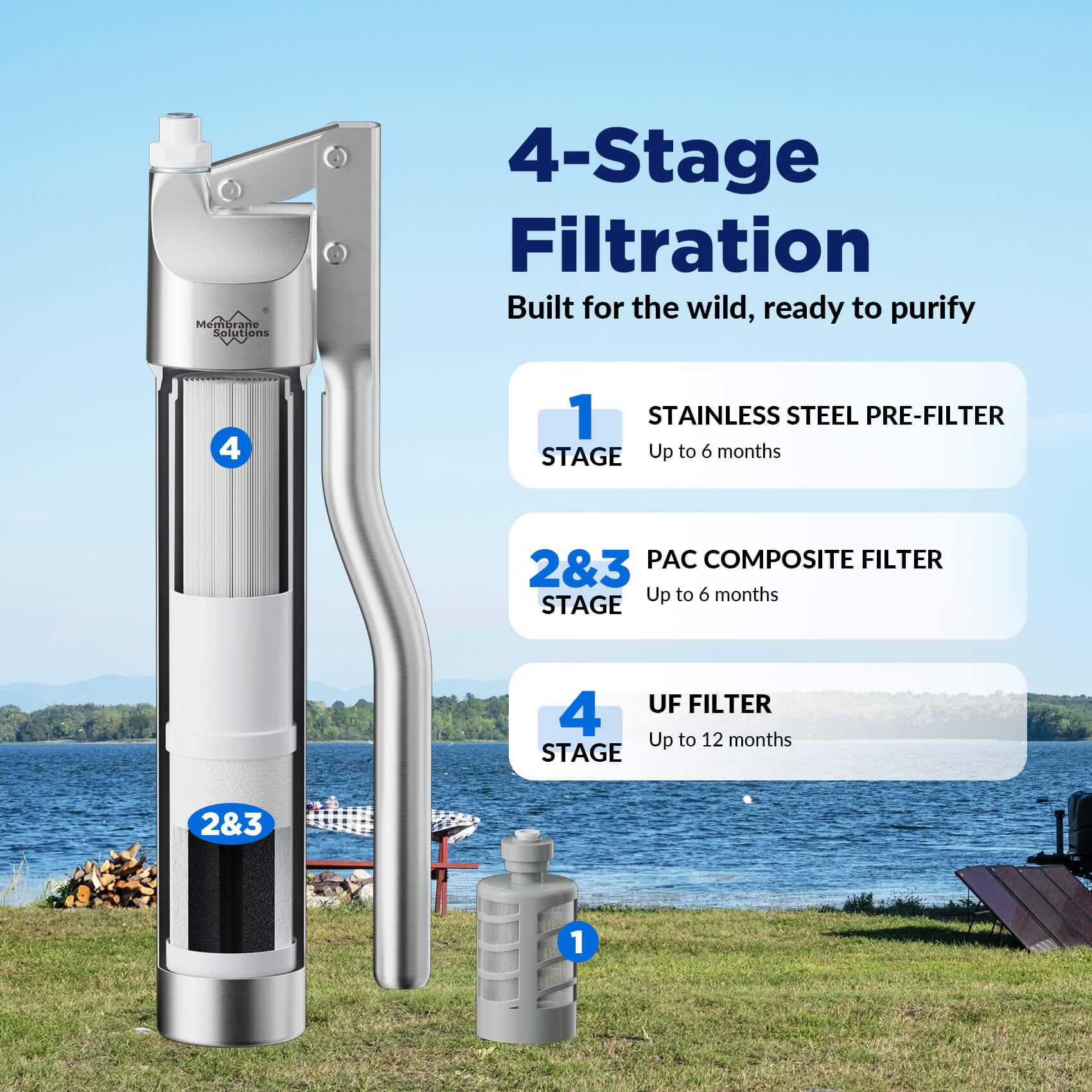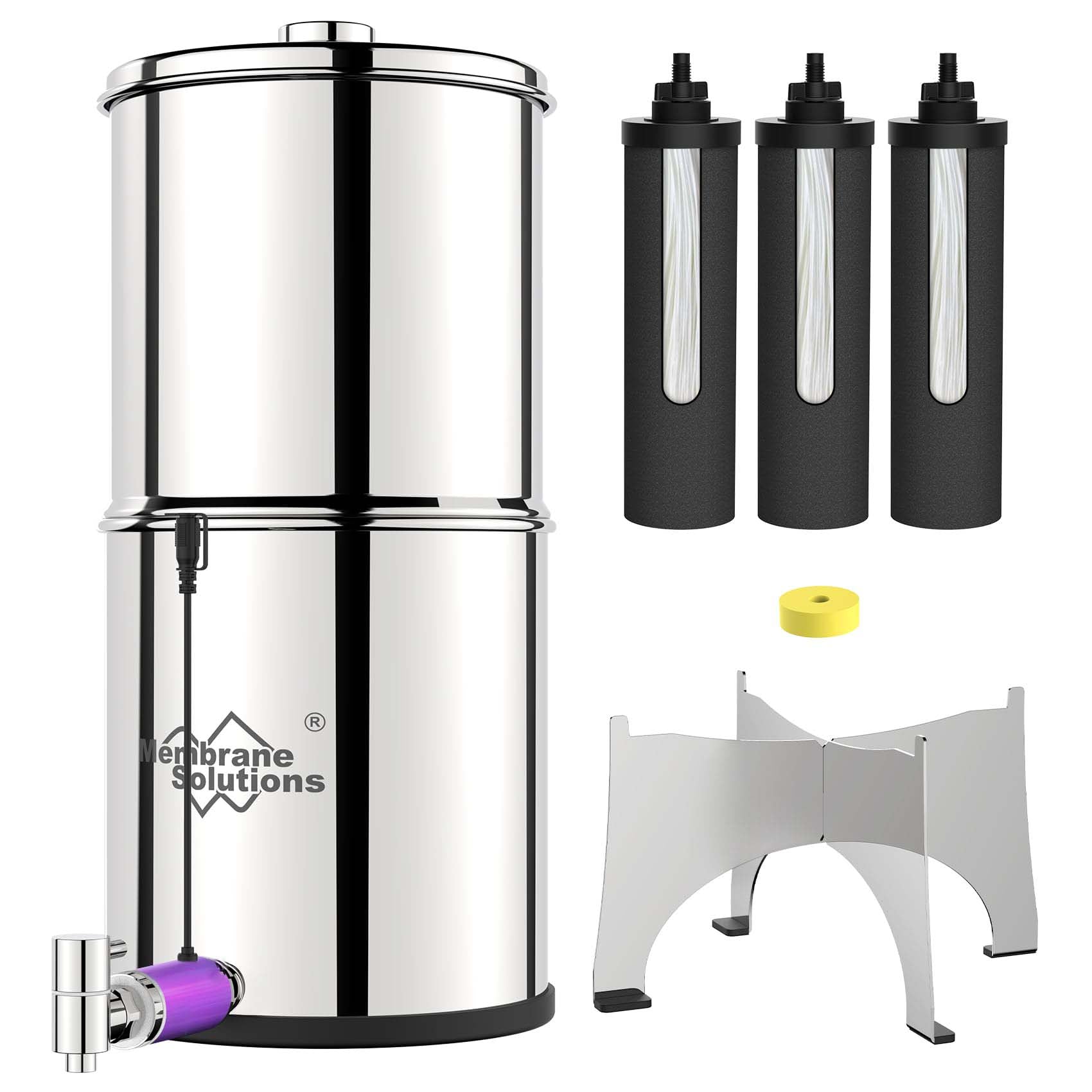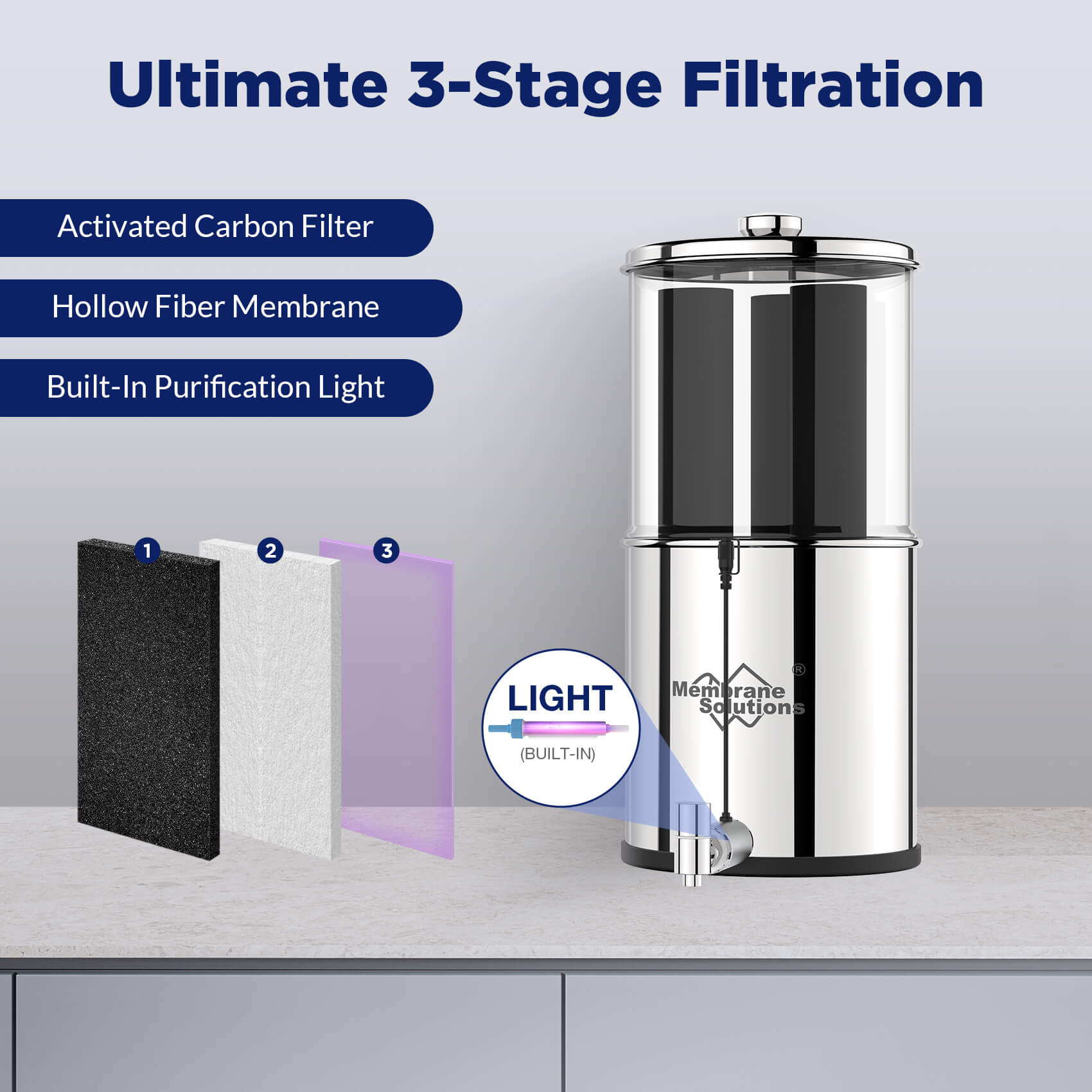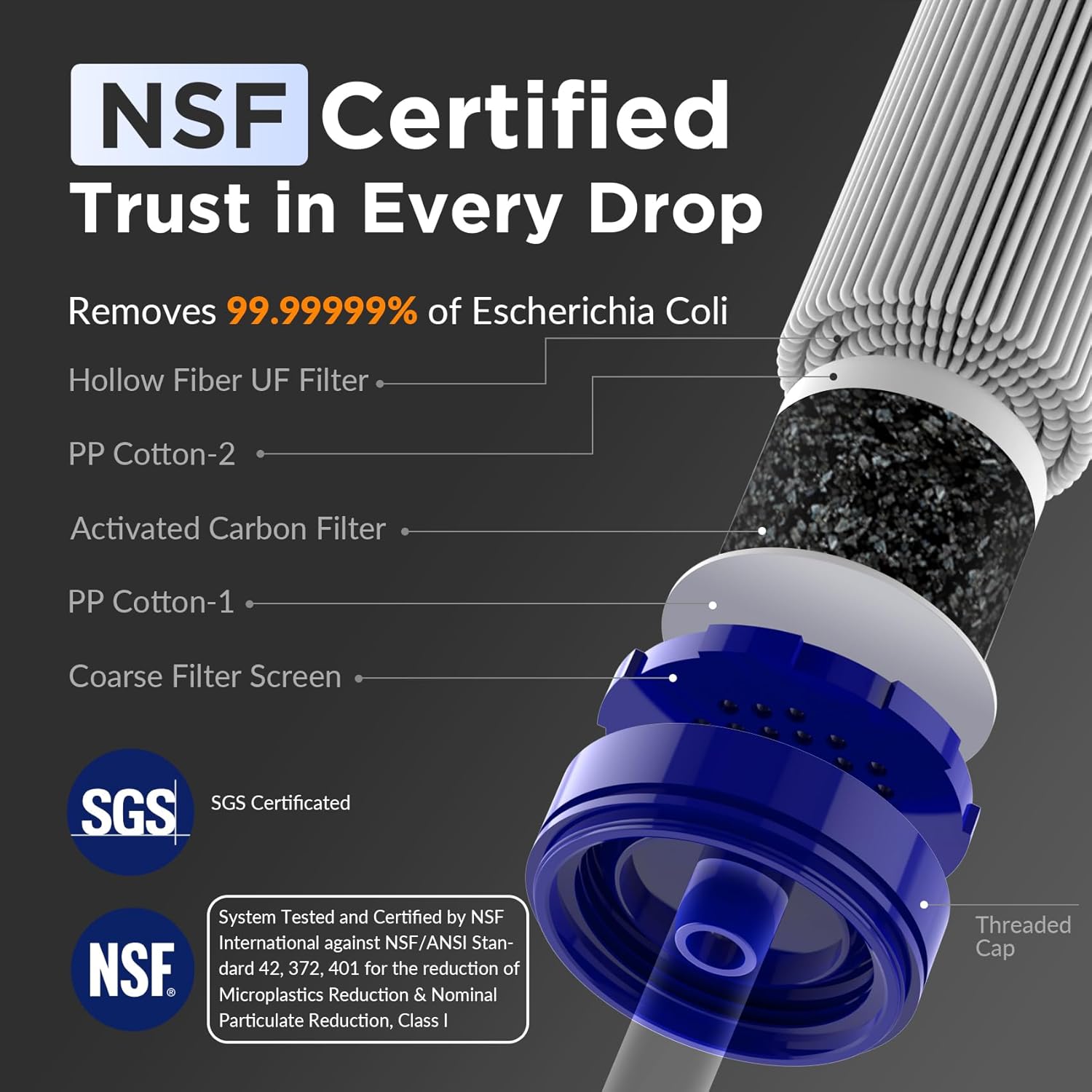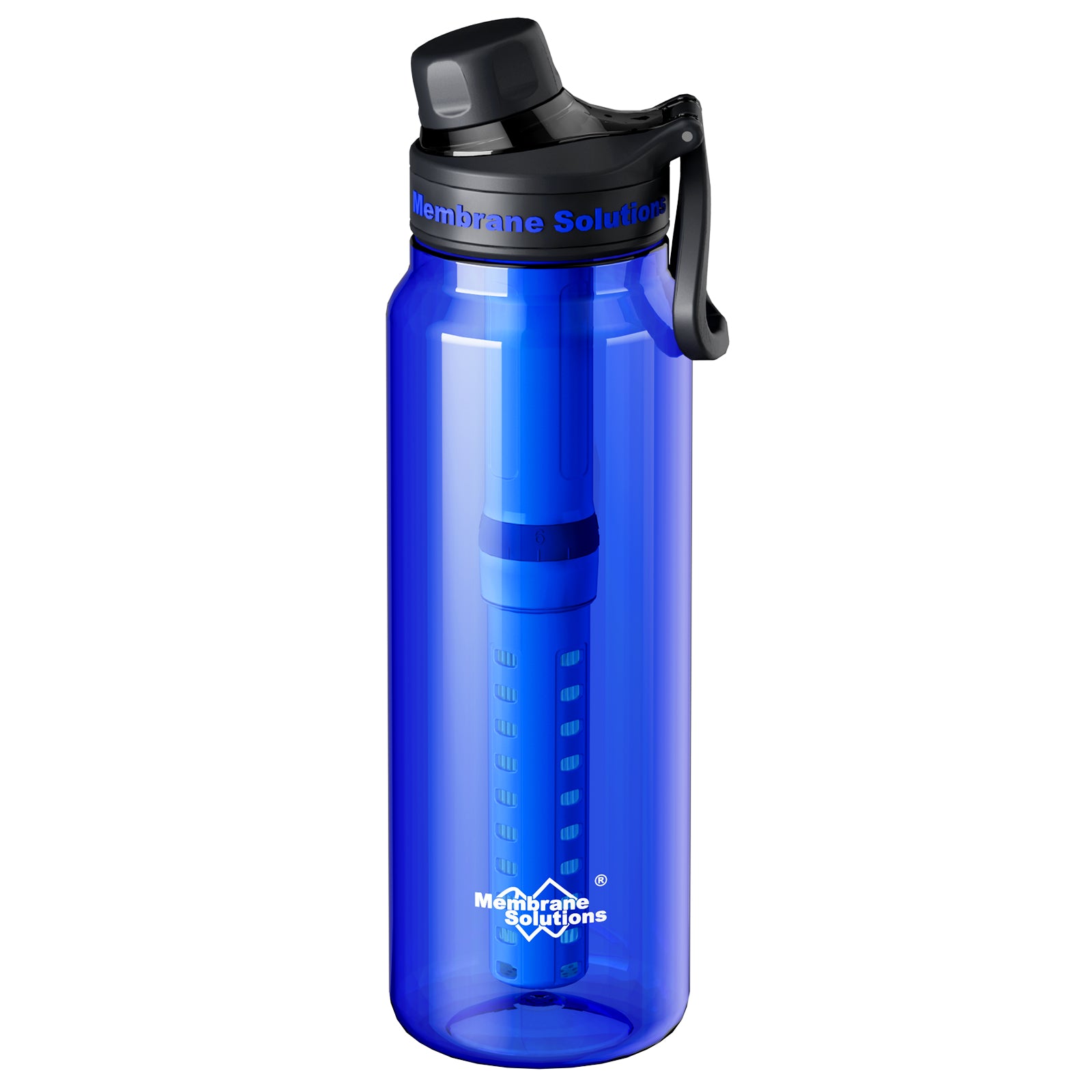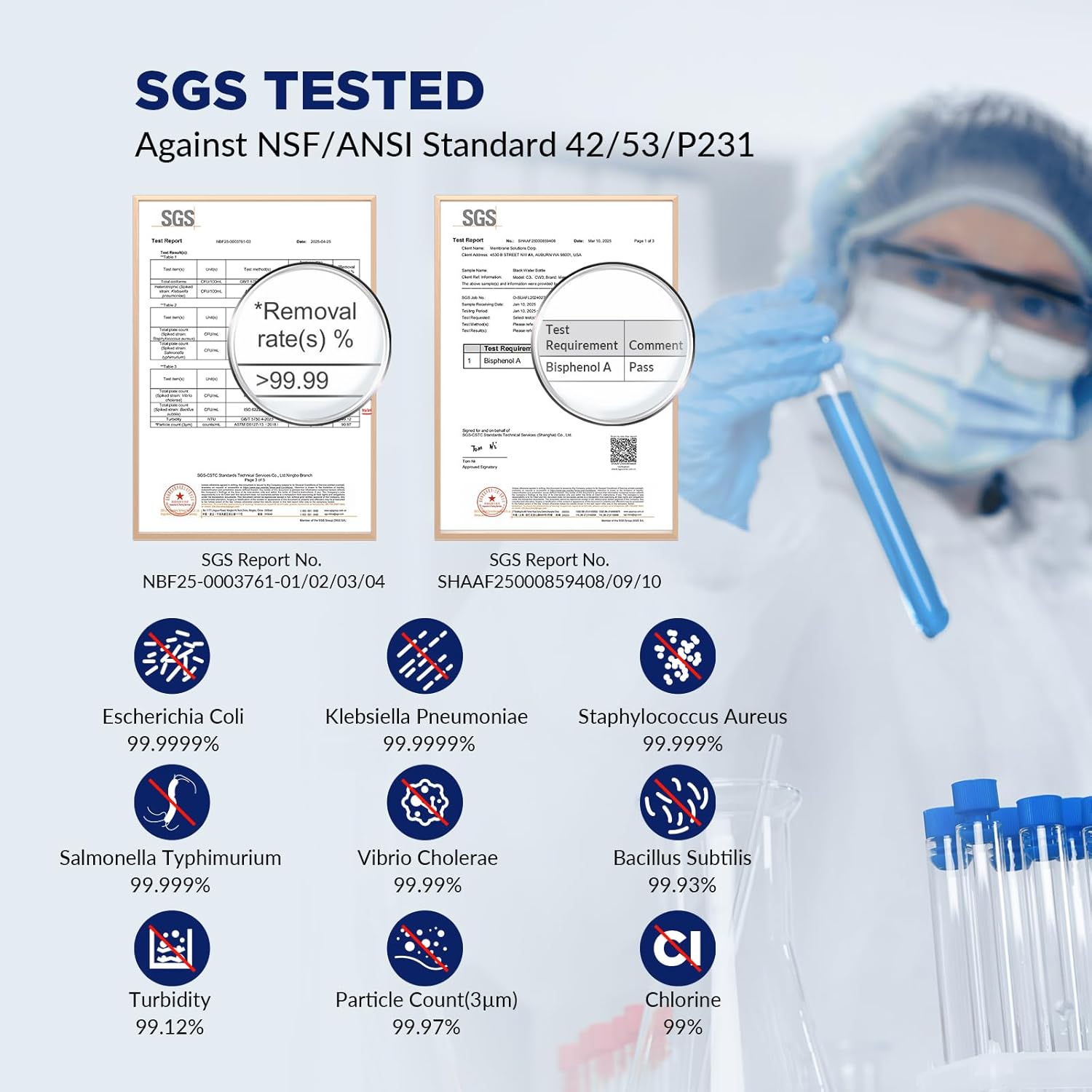As awareness grows regarding the presence of forever chemicals in drinking water, consumers are increasingly concerned about the safety of their water supply. These persistent organic pollutants, known for their longevity and potential health risks, prompt many to seek robust filtration solutions. Among these, reverse osmosis stands out as a popular choice due to its advanced filtration process, which utilizes a semipermeable membrane to block contaminants. But does a reverse osmosis filter remove forever chemicals? Does it truly address this issue? Let us explore in the following!
Definition and Characteristics of Forever Chemicals

Forever chemicals, scientifically termed per- and polyfluoroalkyl substances (PFAS), represent a class of synthetic compounds known for their exceptional durability and persistence in the environment. These chemicals are characterized by the presence of strong carbon-fluorine bonds, rendering them highly resistant to degradation processes.
PFAS are ubiquitous contaminants found in various consumer products, industrial applications, and firefighting foams. Their widespread use and persistence have led to their accumulation in water bodies, soil, and even living organisms, posing significant environmental and health concerns.
Common examples include perfluorooctanoic acid (PFOA) and perfluorooctanesulfonic acid (PFOS). Notably, PFAS have been linked to adverse health effects, including developmental issues, immune system disruption, and certain types of cancer. Due to their stability and widespread presence, addressing the contamination of forever chemicals in water sources has become a pressing global challenge. Learn more in this blog: What Is PFAS PFOA PFOS.
Common Sources and Prevalence in Water Supplies
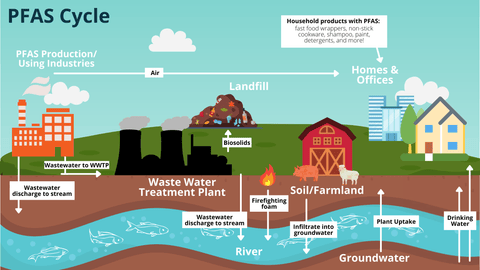
(Picture from https://www.clearwatersystems.com/forever-chemicals/)
Forever chemicals (PFAS), infiltrate water supplies through various sources, contributing to their widespread prevalence. Industrial activities such as manufacturing, firefighting training exercises, and the use of PFAS-containing products like non-stick cookware and waterproof fabrics are primary contributors to contamination. Additionally, PFAS can leach into groundwater from landfills where products containing these chemicals are disposed of improperly. Agricultural practices, including the application of PFAS-containing pesticides and fertilizers, further exacerbate the issue. Furthermore, PFAS can enter waterways through runoff from firefighting operations using PFAS-based firefighting foams. Once in the environment, these chemicals persist for extended periods, accumulating in water supplies and posing significant health risks to humans and wildlife alike.
Does Reverse Osmosis Remove Forever Chemicals: Effectiveness?
Yes, reverse osmosis is indeed effective in removing forever chemicals from water. Numerous scientific studies and findings support the efficacy of RO systems in significantly reducing or eliminating per- and polyfluoroalkyl substances (PFAS), commonly referred to as forever chemicals, from drinking water. The principle behind reverse osmosis involves the use of a semipermeable membrane that selectively allows water molecules to pass through while blocking contaminants, including PFAS, due to their larger molecular size. This process ensures that the water produced by an RO system is substantially free from these persistent pollutants.
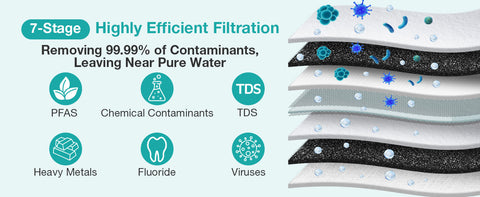
Scientific studies have consistently demonstrated the ability of RO systems to remove PFAS compounds with high efficiency rates, often exceeding 95% removal rates for various PFAS compounds. Additionally, RO has been found to effectively reduce other contaminants commonly found in drinking water, including heavy metals, pesticides, and pharmaceutical residues, further enhancing its overall effectiveness in water purification. Furthermore, the robust nature of RO membranes ensures long-term performance and reliability, making them a trusted choice for households and industries seeking comprehensive water treatment solutions.
Best RO Systems for Removing Forever Chemicals: SimPure Countertop & Under Sink Picks
For those seeking reliable solutions to remove forever chemicals from their drinking water, SimPure offers cutting-edge RO systems renowned for their effectiveness. The SimPure RO Countertop and Under Sink series, including the Y7P and T1-400 models, boast impressive removal rates of over 98.3% and 97.43% respectively for forever chemicals. Dive deeper into the details of these advanced filtration systems below:
1. SimPure Y7P Series

The SimPure Y7P Series offers two variants, the SimPure Y7P-W and SimPure Y7P-BW, distinguished mainly by their color. Both models feature advanced filtration technology designed to effectively remove forever chemicals from your drinking water. With a 3-stage 0.0001μm RO filtration system, they ensure thorough purification, achieving a removal rate of over 98.3%. Additionally, these systems boast UV purification capability, eliminating 99.9% of viruses and bacteria. With easy installation and stylish design, the SimPure Y7P Series provides hassle-free access to clean, healthy drinking water for your home or office. For comprehensive details, refer to the SimPure Y7P SGS report, providing reassurance and transparency regarding the filtration capabilities of these advanced systems.
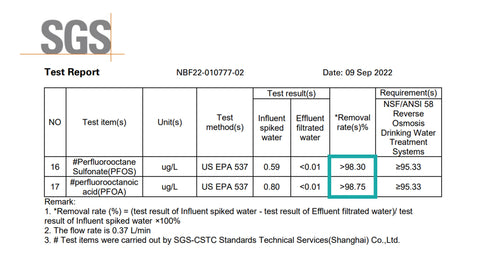
2. SimPure T1-400 Series
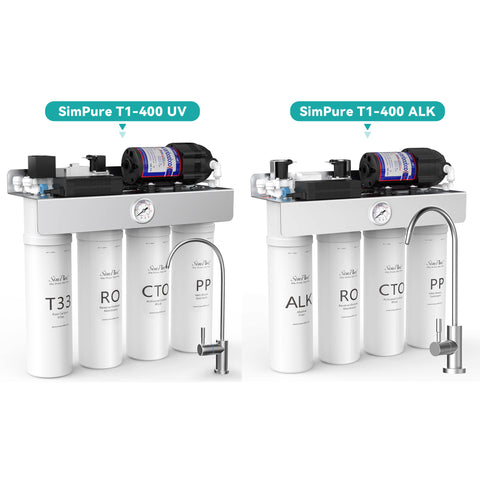
The SimPure T1-400 series, including the SimPure T1-400 UV and SimPure T1-400 ALK models. Both systems are built on innovative 8-Stage Filtration Technology, ensuring the removal of 99.99% of over 1,000 contaminants, including viruses, bacteria, chemicals (such as PFAS: PFOA/PFOS), heavy metals (like lead and arsenic), TDS (nitrates/nitrites), chloride, fluoride, microplastics, and more, found in SimPure T1-400 Series SGS Report below. The SimPure T1-400 UV model incorporates an ultraviolet sterilizer, effectively eliminating up to 99.99% of harmful microorganisms in water, making it particularly suitable for well water sources. On the other hand, the SimPure T1-400 ALK model features an alkaline remineralization filter, restoring the water's natural alkalinity and mineral balance for a refreshing taste.
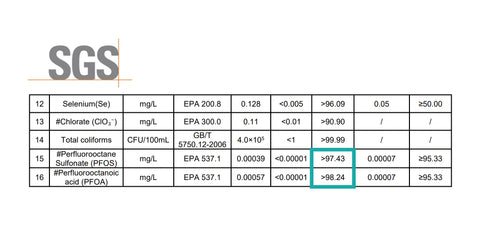
4 Additional Steps to Complement RO Filtration
1. Implement Pre-Filtration: Removes larger particles before RO process.
Pre-filtration involves using sediment filters or other pre-treatment methods to remove larger particles and debris before water enters the RO membrane. This helps to prevent clogging and extends the lifespan of the RO system. By removing larger contaminants before they reach the RO membrane, pre-filtration also enhances the efficiency of forever chemical removal and improves overall water quality.
2. Post-Activated Carbon Filtration: Enhances removal of residual chemicals.
Post-Activated carbon filters work by adsorbing contaminants onto their surface, effectively removing residual chemicals that may pass through the RO membrane. This additional step enhances the overall removal efficiency of forever chemicals, as well as other organic compounds, pesticides, and chlorine. The porous structure of activated carbon provides a large surface area for adsorption, effectively trapping contaminants. It also serves as the filtration stage after RO membrane just like the pictures below: [from SimPure T1-6 Product]
3. Regular Filter Maintenance: Ensures optimal filtration efficiency.
Proper maintenance of RO filters is essential to ensure optimal filtration performance. This includes regular inspection, cleaning, and replacement of filters according to manufacturer recommendations. Neglecting maintenance can lead to decreased filtration efficiency and compromised water quality.
4. Water Quality Testing: Monitors effectiveness and identifies any contaminants.
Regular water quality testing is crucial to monitor the effectiveness of the RO system and identify any potential contaminants, including forever chemicals. Testing should be conducted periodically to ensure that the system is functioning correctly and providing safe drinking water. If any issues are detected, appropriate measures can be taken to address them promptly.
In conclusion, reverse osmosis system effectively removes forever chemicals, providing a reliable solution for purifying drinking water. By exploring various filtration options and understanding their capabilities, consumers can take proactive steps to mitigate the presence of forever chemicals and other contaminants in their water supply. Therefore, it's vital to invest in high-quality filtration systems like SimPure and prioritize regular maintenance to enjoy clean and safe drinking water for years to come.

